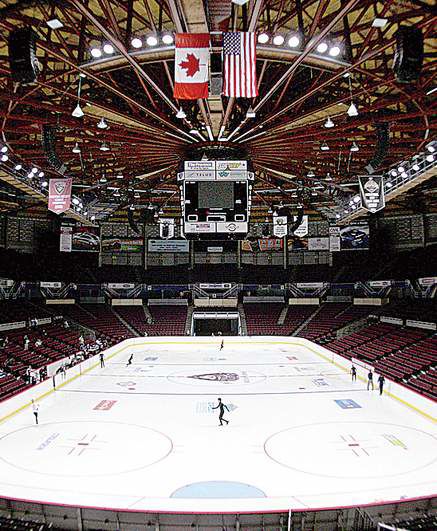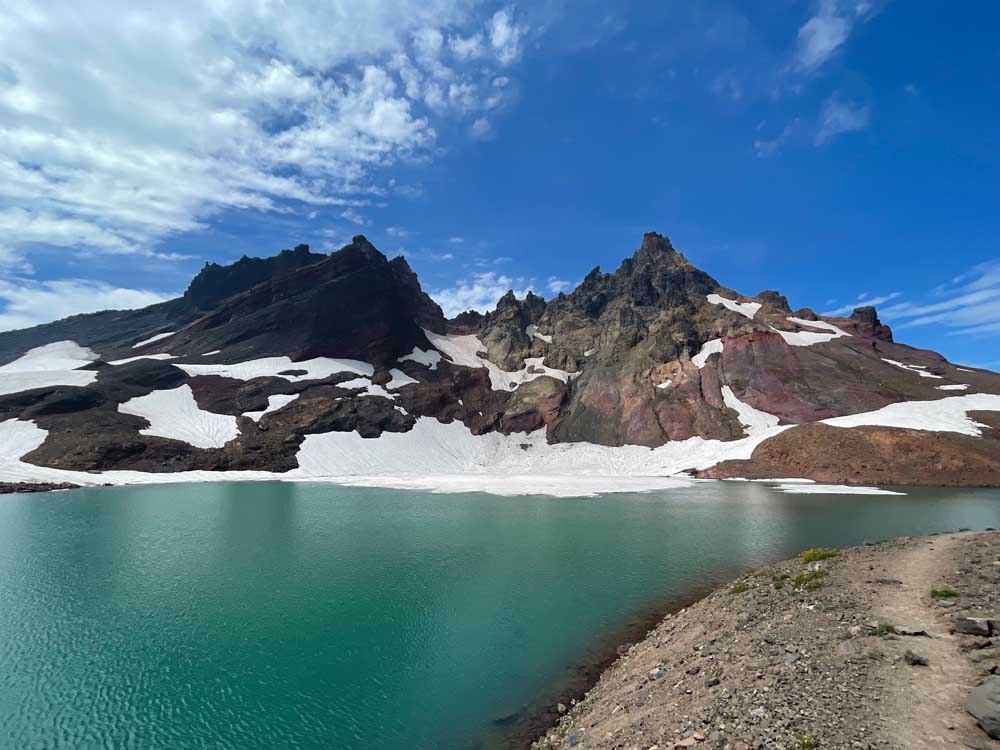For Olympics, Canada hosts with gold in mind
Published 5:00 am Monday, September 21, 2009

- Vancouvers Pacific Coliseum will be the site of figure skating and short-track speedskating events during the Vancouver 2010 Winter Olympic Games.
The American speedskater Catherine Raney spent more than seven years living in Canada and training with the Canadian national team. For four years, a Canadian national coach was her coach, too.
But after the 2006 Olympics, Raney needed to find a new home and a new coach. She was told the Canadians did not want foreign athletes training with them leading to the 2010 Games in Vancouver, British Columbia. Raney and many other foreign athletes expected to spend quite a bit of time practicing at the Vancouver-area Olympic venues, but have been granted only minimal access.
Trending
Theyre playing nasty, said Raney, now living and training in Utah.
I think every one of us would love to prove to them that what they did wasnt right, and were ready to show it on the ice, Raney said.
The way Raney and athletes, coaches and officials of several other sports see it, limiting access to the sites means the Canadians are more serious about mining medals than Olympic spirit.
Canadian officials said they were following rules of access to competition sites, as set by each sports governing body. But they also intend to protect the Olympic hosts home-field or home-ice, home-snow or home-track advantage.
Canada has made a public quest to win more medals than ever, and more than any other country.
By virtue of being at home, you have more access to venues, Cathy Priestner Allinger, the executive vice president for sports of the Vancouver Organizing Committee, said in her office this summer. Thats the nature of it. Theres no country or organizing committee that would tell you otherwise, or that wouldnt try to take advantage of some of that.
Trending
The sometimes conflicting no- tions of sportsmanship and games- manship require a delicate balance. Some say Canada may have tilted too far.
Olympic spirit?
A decades-old open-access agreement between the luge teams of the United States and Canada has come undone. Americans said that most Canadian athletes took 60 to 100 extra practice runs in Utah before the 2002 Salt Lake Games. Canada offered the United States 18 this time, in a trade for 18 Canadian runs at this years world championships in Lake Placid, N.Y. The Americans refused.
I guess I can intellectually say I understand it, said Ron Rossi, the executive director of USA Luge, upset that a gentlemens agreement dating to the 1980 Lake Placid Games has ended. But as an honorable thing, I dont support it, and I think it shows a lack of sportsmanship.
Last winter, speedskaters from several countries were denied access to the Richmond Olympic Oval, Canadian officials said, because they did not make proper arrangements and because of a last-minute decision to shut the site to add lighting. A German team spent days waiting to be allowed in. Kevin Crockett, a Canadian Olympic medalist now coaching for China, was among those who went in, only to be escorted out. The conflict and confusion made headlines in Canada.
At the Whistler downhill course, unfamiliar to most of the worlds best skiers, several medal contenders were left watching over a fence as the Canadian team trained.
Everybody was pushing to get on that downhill, said Max Gartner, Alpine Canadas chief athletic officer. Thats an advantage we cannot give away.
Canadian officials said that they had provided more access than any previous host country, largely because their sites were completed early. But the officials acknowledge that they are also driven to succeed at these Olympics, perhaps more than any previous host country.
Were the only country to host two Olympic Games and never have won a gold medal at our games, Priestner Allinger said, referring to the summer of 1976 (Montreal) and the winter of 1988 (Calgary). Its not a record were proud of.
The target is 35 medals, 11 more than Canada won in 2006 in Turin, Italy. Canadas Own the Podium program is pumping $110 million into the medal push, focusing on athletes most likely to finish in the top three.
Own the Podium emphasizes the advantage gained by giving athletes time to acclimate.
Increased track exposure will provide athletes with the confidence they need to reach the podium, reads a section about bobsled and skeleton in the programs promotional literature. Speedskaters were given a strategic plan to maximize their comfort level at the Olympic oval. Even biathletes were granted additional training opportunities to ensure athletes know every inch of the course.
The nature of our sport
The benefits of familiarity vary by sport. It is particularly important on one-of-a-kind new sites like the track for luge, bobsled and skeleton.
For sure, theres an advantage, said Tim Farstad, the executive director of Luge Canada. Thats the nature of our sport every country has an advantage on its own track. Its not like a 100-meter sprint, where it doesnt matter where you sprint.
At last Februarys luge world championships in Lake Placid, the American Erin Hamlin became the first non-German woman to win in 16 years. Weeks later, on the same track, Steven Holcomb and his four-man bobsled team became the first American world champions in 50 years.
To improve Canadas chances in skiing, the downhill course at Whistler was built each of the last two springs and surrounded with safety fencing, at a cost of more than $100,000. Although Canadas ski team has strong alliances, particularly with Norway, they go only so far.
Once we go to downhill training in Whistler, it has to be exclusive to Canadians, Gartner said. Knowing Whistler and the conditions that can possibly happen there, it is an advantage if youve run that downhill a few times. Theres no question.
It just doesnt seem like its in the Olympic spirit, said Derek Parra, who won gold and silver speedskating medals for the United States in 2002 and now coaches the team. Its un-Olympic.








